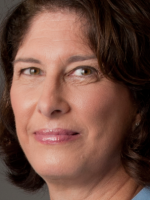ALEX CHADWICK, host:
From the studios of NPR West, this is DAY TO DAY. I'm Alex Chadwick.
MADELEINE BRAND, host:
I'm Madeleine Brand. Coming up, the debate continues over how friendly fire from U.S. pilots killed a British soldier.
CHADWICK: First, President Bush held his first news conference of 2007 this morning. He told reporters he'd held his first briefing with General David Petraeus. He's the new commander in Iraq.
Mr. Bush said the two spoke this morning. And he said he understood how people could become discouraged after seeing the ongoing violence in Baghdad.
President GEORGE W. BUSH: It's disturbing to people. And it's disturbing to the Iraqi people. But it reminds me of how important it is for us to help them succeed. If you think the violence is bad now imagine what it would look like if we don't help them secure the city, the capital city of Baghdad.
CHADWICK: NPR national political correspondent Mara Liasson was watching the president. She joins us now. Mara, welcome back to the show.
MARA LIASSON: Thank you, Alex. It's nice to be here.
CHADWICK: And so along with Iraq, the president also talked about Iran and the reports this week about increasing evidence that Iran is supplying a weapons and maybe advisors to the Shiite militias in Iraq, specifically the components of these roadside bombs.
And Mr. Bush specifically mentioned what is called the Qods Force. Here he is.
President BUSH: The Qods Force is a part of the Iranian government. Whether Ahmadinejad ordered the Qods Force to do this, I don't think we know. But we do know that they're there. And I intend to do something about it.
CHADWICK: So there were these briefings over this last weekend in Baghdad where U.S. military officials said that they had tied senior leaders - top leaders in the Iranian government, presumably including President Ahmadinejad - to these weapons coming into Iraq.
What do we know about this Qods Force?
LIASSON: Well it's an elite unit inside the Iranian Revolutionary Guard. And it's - as the president said it's part of the Iranian government. What we don't know is whether the president of Iran himself ordered them to send these weapons to Iraq.
But the Qods Force is part of the Iranian government. It is a kind of elite military unit. That's what we know.
CHADWICK: So there was quite a lot of back and forth in this press conference because General Peter Pace, chairman of the Joint Chiefs of Staff, had sort of raised questions about whether or not the top tier of the Iranian government was indeed tied to this.
The president said, well, we know the weapons are coming in, so there. All this comes as the House is debating the Iraq war. And how about what Mr. Bush had to say on that, Mara?
LIASSON: Well I thought it was interesting. And I think the president really looked ahead to the next phase of the debate over Iraq. Right now the House is debating this non-binding resolution disapproving his plan to increase troops in Baghdad. And he certainly is against that.
But then he said pretty soon we're going to debate a binding piece of legislation. And that's a bill providing emergency funding. And our troops are counting on everyone in Washington, D.C., to support them and make sure they have the resources they need.
So he is laying down a marker for the next debate about funding. And the debate that the president wants to have is if you vote against the funding you are not supporting the troops.
And there are plenty of Democrats who want to see conditions - if not an outright cut - put on funding of the war. And that is going to come up when the emergency supplemental gets before Congress.
And some Democrats are very wary of going there, too. They don't want to be accused of not supporting the troops. And they're happy to kind of leave the debate at a non-binding resolution expressing disapproval of the president's policy.
CHADWICK: He also mentioned the votes in the Senate in support of General Petraeus, the new commander in Iraq, saying the Democrats voted for General Petraeus and now they want to vote against the policies and ideas that General Petraeus talked about and said that he was going to go lead. And here's a contradiction for the Democrats.
So he talked in political terms as well.
LIASSON: There's no doubt that this - you just saw a preview of the next phase of this debate.
CHADWICK: Yeah. There were other issues including the relationship that Mr. Bush has with the Russian leader Vladimir Putin.
LIASSON: Yeah. That was actually a nice moment in this press conference -interesting moment. He was asked, gee, is Putin that just slammed the United States a couple days ago the same man whose soul you looked into and said that you could do business with?
And it was interesting because the president did not respond in kind to Putin. He actually said there's a lot that we can work together on. It's a very complicated relationship. We have disagreements but we also have common ground.
And he's going to continue to work with Vladimir Putin. But there are many people in the United States - in the government and in the Congress - who feel the relationship is deteriorating. And clearly the president wasn't willing to go that far today.
CHADWICK: Mara Liasson, NPR political correspondent, joining us from Washington. Mara, thank you.
LIASSON: Thank you, Alex. Transcript provided by NPR, Copyright NPR.







